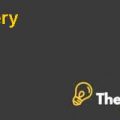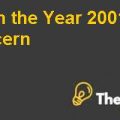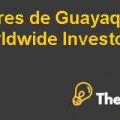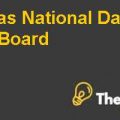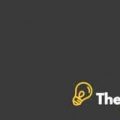DIAGEO AND MAY ICKI: TURKISH DELIGHT OR TURKISH HANGOVER Case Study Solution
TURKEY; FDI DESTINATION IN 2003:
Turkey, from the 1990’s is facing many problems. Inflation rate was up to 75%, banking system was weak, spending was highly deficit, instable politics etc. after the critical economic crises in 2001, Turkey, with the help of IMF and World Bank, transformed its financial and fiscal reforms to lower its inflation, improve banking system and undertake privatization. Hence, made the economy stabilize.
Political stability was finally established in 2002, when a political capitalist-minded party, Erdogan AKP was elected. The AKP initiated a series of improvement in the country by better education, commercial laws were modernized and corporate taxes were low. These steps helped the economy to grow towards betterment. The GDP increased by 6% forthe next 6 months and then continued to grow.
In 2002, the IMF set the standards and targets for privatization. Initially, Turkey didn’t receive higher bids for its assets but as the foreign interest decreased, state’s assets privatized in 2005-06. Most of the investments were by European countries.
TURKEY; FDI DESTINATION IN 2011:
The country’s GDP in 2011 increased by 9%. And it was forecasted that Turkey is following growing trends. OECD forecasted that Turkey will be the fastest growing economy from 2011-17. As the access to loans increase, young people and middle class will start spending money, which will the economy to grow more.
By 2011, Turkey had a promising growth rate, and still forecasted to grow,which increases the ratings of investment. The flourishing economy of the country, helped Erdogan AKP to gain his popularity and power, which resulted in making him the prime minister as he was elected for three continuous times.
STRATEGY IMPLEMENTATION AND RESULTS BY DIFFERENT OWNERS:
As the demography and economy grows, with the growth of tourism industry, Turkey started marching towards westernization. As a result, the consumption of alcoholic beverages increased at a very high rate. By 2012, the sales were doubled to 1.1227 billion liters.
Beer was the largest drink consumed, while Raki and spirits were less consumed. The alcoholic consumption was expected to grow, as the income level of people have grown, and the young people will like to socialize more.
As the tourist industry was growing, not only international brands, but local brands were also appreciated and sold. When it comes to volumes, Efes Pilsen was the leading Turkish brand. Turk Toberg was the second and MeyIcki was holding third position in sales. Mey Icki was the leader of Spirits sales in Turkey, categorizing 70% of its sales of spirits.
The leading distribution channels were convenience stores and discount stores. Also the small food, drink, tobacco shops and super markets. The off trade sales volume was about 57%. On trade markets for examples clubs, hotels, restaurant, pubs were selling rest of 43%. But only 28.2% of spirits sales were made through this channel.
TEKEL, the national alcoholic and tobacco manufacturing and Distribution Company, worked under the Government of Turkey. But due to FBI, it has to be privatized by 2003. It was the monopoly in Turkey. The Consortium of four domestic firms succeeded to get the alcohol production and distribution monopoly of Turkey. Later, the Consortium re branded it with the name; MEY ICKI.................
This is just a sample partial work. Please place the order on the website to get your own originally done case solution.


